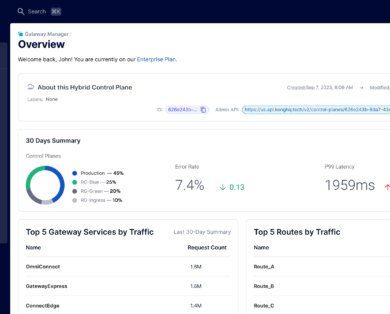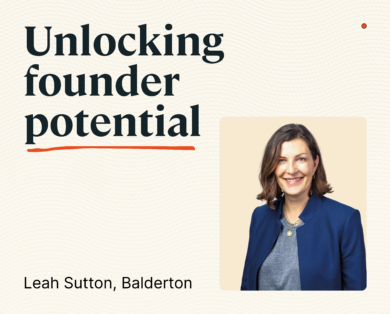- Portfolio News
- 09 January, 2025

Last week we launched the first in a series of Women in VC breakfast gatherings at Balderton’s HQ. We were delighted to welcome Leila Rastegar Zegna, General Partner at Kindred.
Leila, speaking with a wealth of experience having been an entrepreneur herself and spent a decade in VC, discussed how to be the best board member.
Leila kicked things off by sharing three characteristics she believes are crucial to being a successful board member:
- How they think about their relationship with other board members and the founder/CEO. Leila defines a relationship as the ability to share problems. Board members should be striving to create an environment, both as an individual and as a board, that facilitates this. Having an open and trusting relationship allows for the depth of conversation that is crucial to success.
- High standards + deep devotion – i.e. how they show up in the environment. It can be easy to take on the role of “supportive cheerleader” and more difficult, but entirely necessary, to be capable of radical candour, holding founders accountable and to high standards so they can achieve their full potential. This can be a phenomenal gift to give somebody but there’s a right way of doing it, and it isn’t group shaming or taking them by surprise.
- Having two ears and one month and using them in that proportion. Active listening is a hard skill to master and it takes confidence to sit quietly. But it is often the thoughtful, steadfast person who doesn’t feel the need to prove themselves that ends up cutting through the noise and being a key contributor.
Of the three, Leila encouraged everyone to orient most of their energy towards the founder relationship. Authenticity is a key pillar in any relationship, so being open and honest with both the CEO and the board from the outset will make the inevitable difficult conversations easier in the long run. It is worth putting time and effort into in-person and social meet-ups – having this sort of relationship with a founder can end up with you being the closest feedback loop and subsequently earning you a voice that others in the boardroom won’t have. Maintaining objectivity when you’re so invested in a relationship can be tricky, but it is better to have that type of relationship whilst reminding yourself to keep some objectivity, rather than being detached.
We wanted to share a few other questions from the room, which Leila responded to:
How do you add the most value to a board meeting?
The key is not to get caught up in the operational weeds that won’t move the needle and make the company great. The board is meant to be the strategic sounding board, so prepare for meetings by forcing yourself to have a view on the one or two things that could really steer the company in the right direction and then focus your contributions around those areas.
Every board member has their own persona. How do we find our own superpower at a board level?
Start with understanding yourself: a coach can help you with this but typically you’re good at what you enjoy. Don’t try to be somebody else, or you’ll always fall short of that person. It is also important to acknowledge that what you offer a company at Seed stage may not be what they need at growth, so have the self-awareness to roll off a board at the right time.
How do you carve out your own relationship when you’re a board observer or quite junior?
In fact, it is often the observer who can build the closest relationship with the founder. The senior partner may have the sparkle and words of wisdom, but a lot of impact comes from the more junior person with the capacity to follow-up and get things done. So definitely don’t underestimate the role of an observer.
What do you do if a board becomes dysfunctional?
First of all, you should keep in mind that not every problem is the responsibility of a board member to fix. Founders are responsible for crafting and curating a high functioning board, which may involve introducing a third party Chairman to ensure meetings run smoothly. Nonetheless, funding rounds provide a natural business inflection point and are a good opportunity to implement board changes.
What happens if you take over a board seat from somebody else?
In our world, these are known as orphaned companies and the first thing to do is recognise it’s a difficult time for a founder. They’ve lost one of their original supporters and somebody with whom they have no connection to will be joining their board. In this situation, there’s no substitute for enthusiasm – vocalise your belief in their company and share your excitement at what the future holds and discuss how you can support them.
How do you balance all the responsibilities?
It’s important to acknowledge the time commitment involved. Being a board member is not just about quarterly meetings, it’s about everything that goes on in between. The word “generative” is a helpful north star – you should focus on the boards and commitments that energise you and give you the momentum to keep going. You can always roll off some boards, especially if the company is at a later stage and you can see you would provide more value by spending time elsewhere.It is also worth remembering it isn’t just you on the board. The entire Partnership at the firm is there to support you, ultimately it’s not just “your” investment.
How do you tackle difficult conversations?
Founders understand that you’re part of a fund and not the sole decision maker, but on the outset you need to walk them through what this means and how you define success in your partnership (via OKRs, or a framework etc.) This will mean that you’ll have quantitative points along with qualitative ones that you can always refer back to. The board meeting itself shouldn’t present any surprises so it’s best to have any difficult conversations ahead of time. Taking an inquisitive, rather than prescriptive approach tends to result in the most productive conversations ie. how do we set the company up for success in the macro environment vs. we should cut heads to manage burn. And remember that you are part of a partnership. You are not solely responsible for any given investment so you should seek help or support from your partners if you need.
How do you deal with your boards when you’re on maternity leave?
There’s no playbook for this and I’ve seen everything from being completely offline to giving birth and being on a board call the day after. The best thing to do is to under promise and overdeliver, nobody will mind if you decide to get back to work earlier than originally planned. Relationships do require maintenance, so if you chose to continue any aspect of work whilst on maternity leave, then this would be the place to invest your time.A huge thanks to Leila for coming along and sharing her insights.














